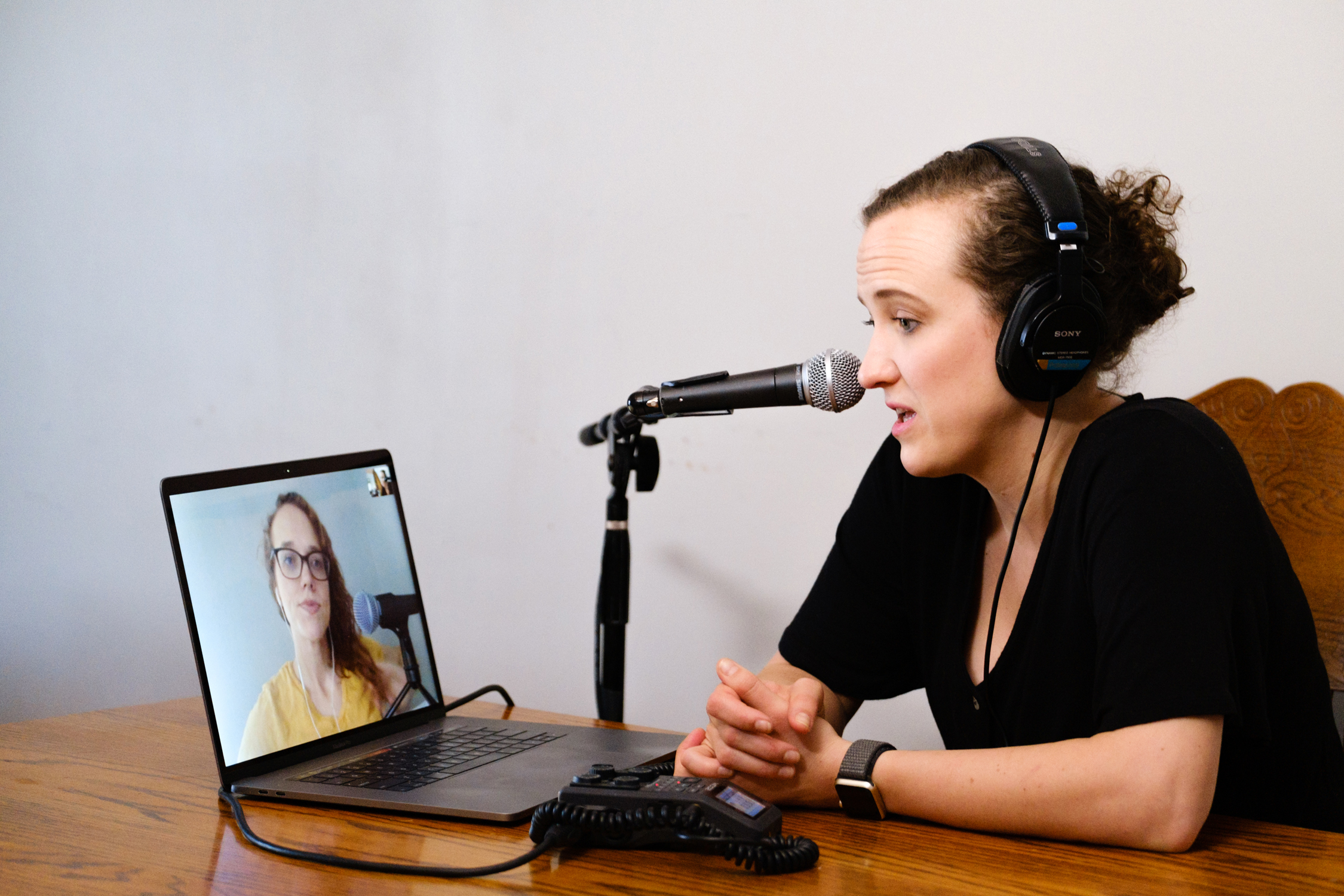Friendship first, story second. These have been the cornerstones of success for Count Me In, Riverdale, and Obsidian, three Retriever-made podcasts.
While their production paths differ, all three started with the same premise—to have more time to talk and create with a good friend about a topic they obsessed about. Podcasts take time and energy, so you had better love the topic you chose.
For sisters Carly Faye Engelke ’08, dance, and Hannah Mae Engelke ’14, psychology, their die-hard topics were dance and Montessori.
“We talked for hours each day, even though we lived in different time zones, to the point where my husband,”—producer Corey Jennings ’10, economics—“strongly suggested we start a podcast,” says Carly Faye. With 82 episodes covering a wide range of dance-related topics and an impressive guest list behind them, Count Me In shows no signs of slowing down.
On the other hand, Riverdale co-creator Imani Spence ’16, English and media and communication studies, produced just six episodes to coincide with her specific fandom. When Spence, a long time fan of the Archie Comics, watched the Archie-inspired teen mystery show, Riverdale, she knew she needed to share her new guilty pleasure. Spence also wanted to keep in touch with her best friend, Amanda Quinn ’16, political science and global studies, who lived across the country. Bam! The Riverdale podcast was born.
“I watched the first season and was hooked,” says Spence. “I got Amanda hooked. Next thing we knew we were watching the show, taking notes, and recording a podcast.”
As in the case of Obsidian, sometimes the obsession is an intentional artistic exploration. The narrative podcast evolved from a creative writing exercise between friends Adetola Abdulkadir ’17, bioinformatics and computational biology, and Safiyah Cheatam M.F.A, ’21, intermedia and digital art, who discovered a mutual love of science fiction and Afrofuturism, which explores the liberation and betterment of black people and black lives through different mediums.
“I wanted to write scripts again and this was a great opportunity,” says Cheatam. “I believe Afrofuturism is a good tool for black people to imagine a better future for themselves.” Over the course of a year, they worked on creative development, hired actors, a sound designer, and an artist to create one episode. They are now funded for 10 more episodes through a Rubys Artist Grant from the Robert W. Deutsch Foundation.
In addition to the importance of collaboration and topic focus, podcasts require some technical skills—and all three of these production teams had either prior experience in radio or friends who did. But, regardless of skill level, they all struggled to find time between life commitments. Their advice? Forgo the fear of lacking technical skills, time, location, an audience, or a certain number of episodes. Make it work.
In the end, they all agree, podcasting is about having fun. It is a medium that can deepen the bonds of friendship and creates a community, making all the hard work worth it.
*****
Header image: Carly Faye Engelke and her sister Hannah record an episode of Count Me In. Photo by Corey Jennings ’10.
Tags: Spring 2020

